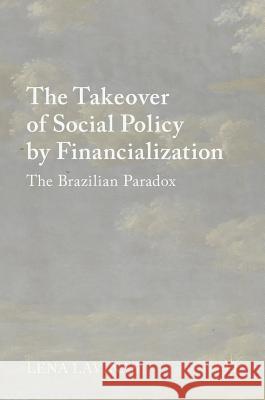The Takeover of Social Policy by Financialization: The Brazilian Paradox » książka
The Takeover of Social Policy by Financialization: The Brazilian Paradox
ISBN-13: 9781137491060 / Angielski / Twarda / 2017 / 219 str.
This book upends the so-called post-neoliberal reading of the new wave of social and economic development in Brazil at the turn of the twentieth-first century. It uncovers what I term 'the Brazilian Paradox' that is, the recent ongoing shift towards a mass consumption society coterminous with the resilience of underdevelopment. I argue that the persistence of economic and social inequalities and of low levels of productivity shows that the long-hoped-for synergy between social and economic policy in Brazil was ruptured, thereby failing to engender a virtuous cycle of inclusive growth capable of putting an end to underdevelopment. The book provides a compelling analysis of how the current social policy model developed by the center-left majority ultimately gave rise to a finance-led mass consumption society, rather than unwinding a long history of structural heterogeneity which has barred Brazil from reaching the status of a developed country.











